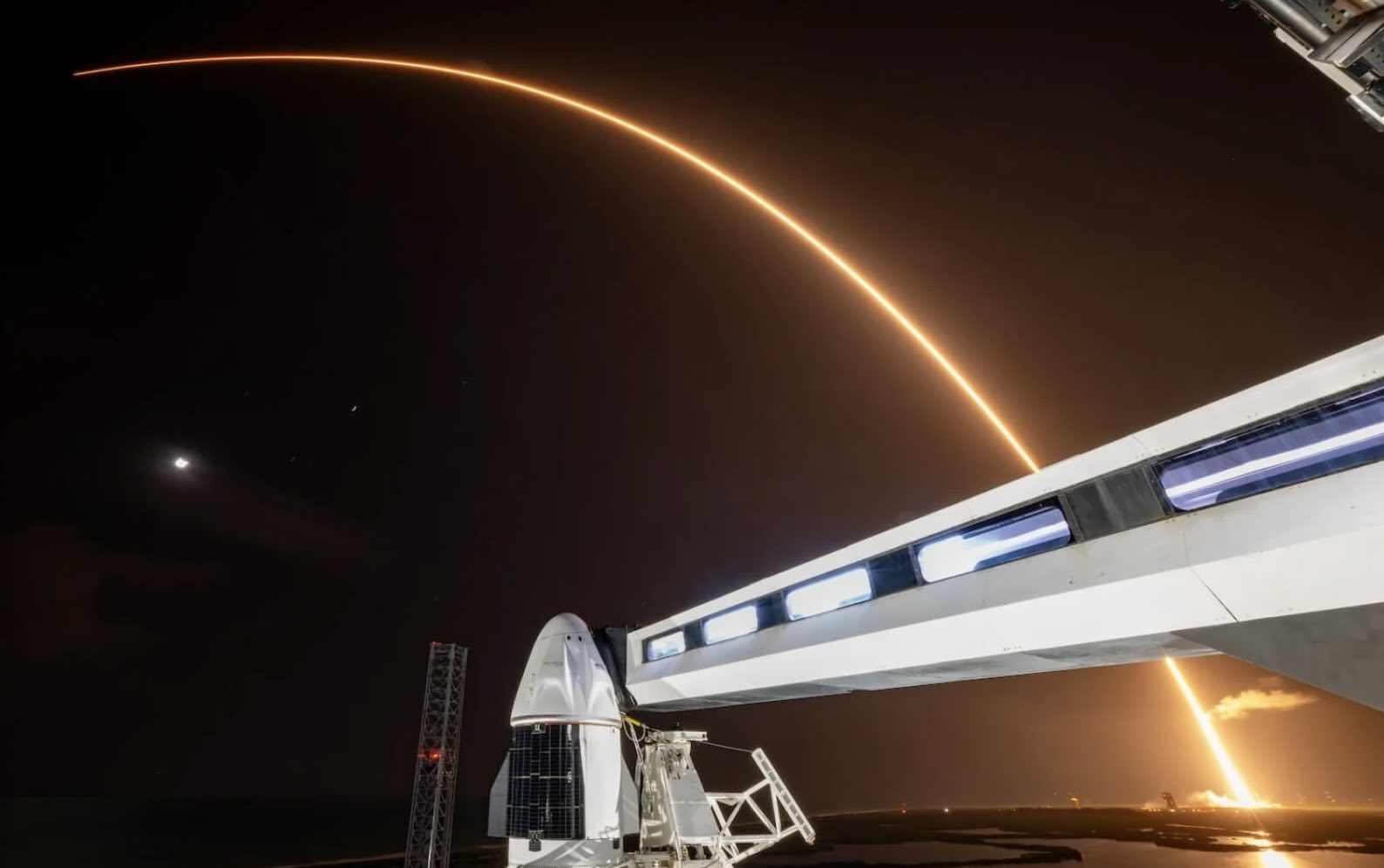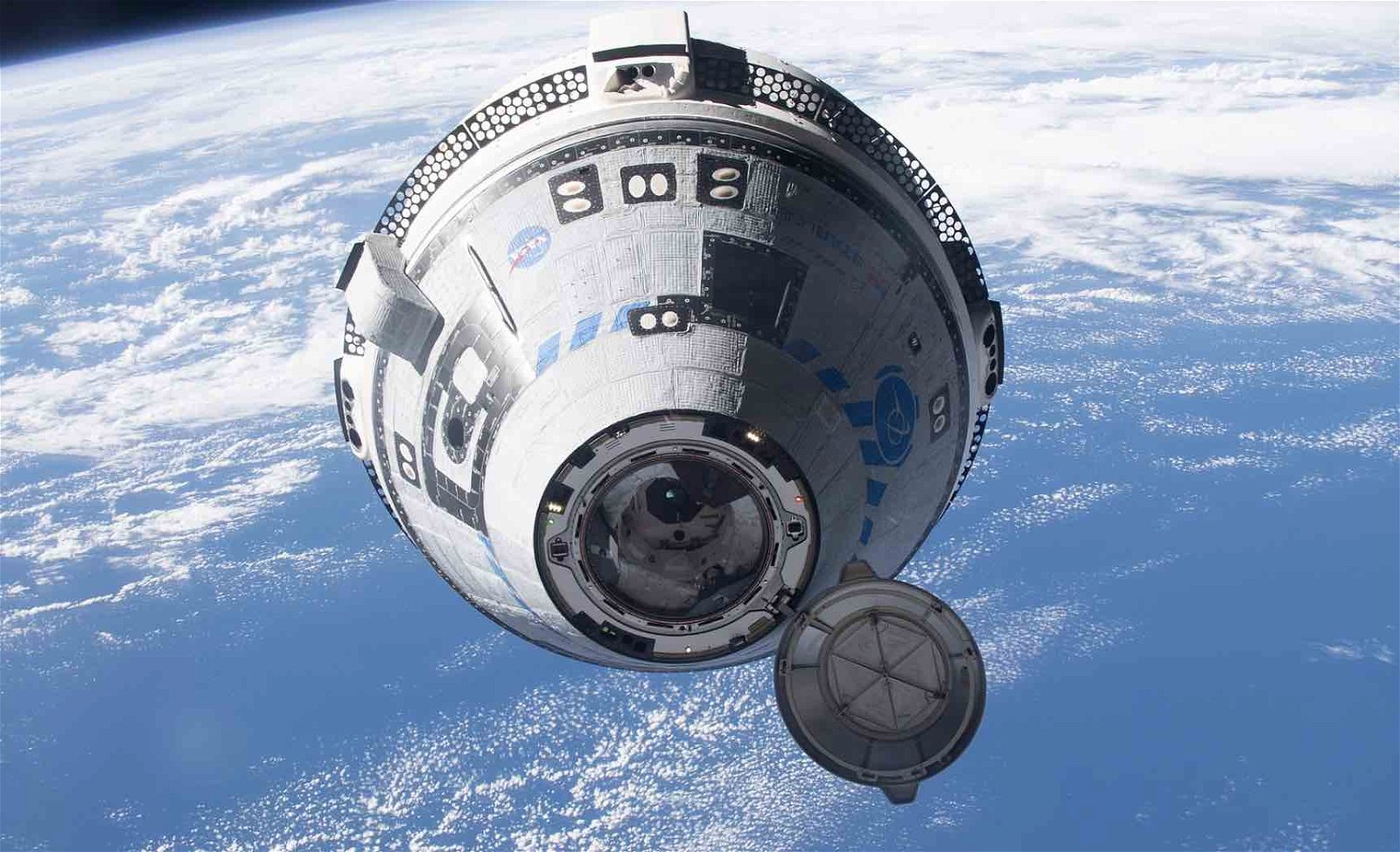

Welcome to this week’s installment of The Intelligence Brief… on Thursday, an FAA decision temporarily grounded future launches of SpaceX’s Falcon 9 rockets, following an incident that led to an explosion after a successful Starlink satellite launch. In our analysis this week, we’ll be looking at 1) what happend on Thursday that led to the FAA decision, 2) the commercial missions that will be impacted by the decision, and 3), how the temporary grounding of Falcon 9 rockets could impact a pair of significant commercial space missions in the weeks and months ahead.
Quote of the Week
“A return to flight of the Falcon 9 booster rocket is based on the FAA determining that any system, process, or procedure related to the anomaly does not affect public safety.”
– FAA Statement
Latest News: In recent articles at The Debrief, the DoD announced this week that Dr. Jon T. Kosloski has been selected as the new full-time director of the All-domain Anomaly Resolution Office (AARO). Elsewhere, we report on how panpsychism, the theory that the universe itself is a conscious entity, has seen renewed interest in academia in recent years. You’ll find links to all our recent stories at the end of this week’s newsletter.
Podcasts: In podcasts this week, Stephanie and Kenna are back for a new season of The Debrief Weekly Report. In this episode, they take a mental dip into new findings regarding “hidden consciousness” inside the brain. Meanwhile on The Micah Hanks Program, historian Charles Lear joins us to discuss the evolution and origins of the modern mythos surrounding UAPs. You can catch up on past episodes over on The Debrief’s Podcasts Page.
Video News: On the latest episode of Rebelliously Curious, Chrissy Newton is joined by Kimberly Engels for a discussion of how “human sensors” can apply to modern UFO research. Be sure to check out other great content from The Debrief on our official YouTube Channel.
With that all out of the way, it’s time to look at the incident that has grounded SpaceX’s Falcon 9 rockets for the time being, and what the broader implications will be on commercial spaceflight in the months ahead.
SpaceX Encounters Problems After Falcon 9 Mishap
Today, a pair of key SpaceX missions, Polaris Dawn and Crew-9, face uncertainty as federal regulators have grounded the company’s Falcon 9 rockets to investigate an incident involving a failed booster landing on Thursday.
The incident, which resulted in an explosion, followed a successful launch and deployment of the latest batch of the company’s Starlink satellites, and prompted the Federal Aviation Administration (FAA) to halt forthcoming Falcon 9 launches.


Thursday’s incident will likely present new challenges for the company, as it is expected to delay the widely anticipated Polaris Dawn mission and its historic first commercial spacewalk. Not only that, but the FAA’s decision also may stall the upcoming Crew-9 mission to the International Space Station, where a pair of astronauts remain stranded after Boeing’s Starliner spacecraft encountered problems weeks ago.
Postponing a Historic Commercial Space Mission
So how did we get to this point? The story began last week, as SpaceX was preparing for the launch of four private astronauts on the Polaris Dawn mission, operated on behalf of Shift4 CEO Jared Isaacman. The mission is the first of a series under the Polaris program, during which the Crew Dragon capsule is planned to take a crew of four: Isaacman, along with Scott Poteet, Sarah Gillis and Anna Menon, to the furthest distance in orbit any astronaut has gone since NASA’s Apollo program.
Following the crew’s passing through the Van Allen radiation belt, the crews mission includes what will be a historic commercial spacewalk. Originally, the mission was scheduled for late August, although several delays have already postponed the launch.
More Problems for SpaceX’s Falcon 9 Rockets
The specific issue that prompted the FAA’s decision resulted from a Falcon 9 rocket booster that failed to land properly on the drone ship “A Shortfall of Gravitas” following this week’s routine satellite delivery mission. While attempting to land, the booster tipped over and exploded, although fortunately there were no injuries or damage to public property reported by federal investigators.
Citing a need to ensure public safety and prevent similar accidents in the future, the FAA said in a statement that it will soon require SpaceX to submit a report on the incident, along with potential corrective actions, all of which will keep SpaceX’s Falcon 9 rockets on the ground until federal investigators are satisfied that measures have been implemented that will ensure safety going forward.
The FAA’s decision follows a similar decision in July that grounded the company’s Falcon 9 rockets, after a liquid oxygen system leak during a launch resulted in the incorrect deployment of a previous batch of Starlink satellites.
The satellite deployment mishap led to their destruction as they reentered Earth’s atmosphere, where they disintegrated. At that time, the FAA grounded SpaceX’ Falcon 9 rockets for close to two weeks.
SpaceX Delays Mean Trouble in Orbit
The FAA’s decision could also impact the forthcoming Crew-9 mission, which aims to send a pair of NASA astronauts to the International Space Station (ISS) at the end of the month. Like the Polaris mission, the Crew-9 mission has also seen recent delays.
A crucial aspect of the Crew-9 mission setback is its potential impact on NASA’s plans to return a pair of astronauts currently stranded on the ISS following safety concerns that arose with Boeing’s Starliner spacecraft. The Crew-9 mission would ideally have served as the astronauts’ ticket home in February, after remaining aboard the ISS for close to six months.


Now, as investigations are underway, it remains unclear what the timeline for either the Polaris Dawn or the Crew-9 missions will be. What does seem clear, however, is that two of SpaceX’s most ambitious efforts will remain temporarily on hold, a turn of events that will likely also have a much broader impact on several key developments involving crewed spaceflight in the days ahead.
That concludes this week’s installment of The Intelligence Brief. You can read past editions of The Intelligence Brief at our website, or if you found this installment online, don’t forget to subscribe and get future email editions from us here. Also, if you have a tip or other information you’d like to send along directly to me, you can email me at micah [@] thedebrief [dot] org, or Tweet at me @MicahHanks.


Here are the top stories we’re covering right now…
- Strange New Organism Found Thriving in One of Earth’s Harshest “Alien” Landscapes is Challenging Our Thinking on Evolution
The discovery of a new organism thriving in a seemingly inhospitable “alien” landscape is revealing new insights into the evolution of life.
- Breakthrough “Smart” Window Generates Electricity from Raindrops
This newly invented smart window can reflect incoming heat, defrost itself, and generate electricity from falling raindrops.
- James Webb Space Telescope Makes Rogue Planet Discovery That’s Reshaping Our Understanding of Planet Formation
Recent images from the Webb Telescope have unveiled six rogue planet discoveries, sparking significant questions among astronomers about the processes of star and planet formation.
- Neuralink Implant Enables Second Study Participant to Play ‘Counter-Strike 2’ with His Mind
Elon Musk’s Neuralink has implanted a second clinical trial participant with the “The Link” brain interfacing chip.
- Secretive SR-72 Hypersonic Aircraft, Successor to Lockheed Martin’s Legendary SR-71, Could Soon Take Flight
New indications suggest Lockheed Martin’s secretive SR-72 hypersonic demonstrator aircraft could finally be nearing production.
- Is That A “Hidden Consciousness” In Your Brain, Or Are You Just Happy to See Me? This week on The Debrief Weekly Report…
Stephanie and Kenna are back for a new season of The Debrief Weekly Report. In this episode, they take a mental dip into new findings regarding “hidden consciousness” inside the brain. They also discuss why playing video games is good for your mental well being, and a brand new bandage that uses water and electrical currents to heal wounds faster!
- An Unexpected Discovery Could Rewrite the History of Cocaine Use in Europe
A surprise discovery reveals cocaine may have been widely available and used in Europe, centuries earlier than previously thought.
- DARPA-Funded Research Aims to Place Humans in “Suspended Animation”
DARPA-funded researchers from Harvard University have identified an Alzheimer’s drug that could place patients in suspended animation.
- 43% of FDA-Approved AI-based Medical Devices Are Trained Using Fake Patient Data
Close to half of the AI devices authorized for use by the U.S. Food and Drug Administration (FDA) are trained without using clinical data from actual patients, according to new findings by an international team of researchers.
- The Pentagon’s Official UAP Investigative Office Has a New Full-Time Director
The All-domain Anomaly Resolution Office (AARO) announced on Monday that Dr. Jon T. Kosloski has been selected as its new full-time director.
- Is The Universe Conscious? Growing Dissatisfaction with Materialist Views of the Mind Are Propelling a Resurgence in Panpsychism
Panpsychism, the theory that the universe itself is a conscious entity, has seen renewed interest in academia in recent years.
- NASA to Launch EXCITE Mission from Antarctica to Study Exoplanets from the Edge of Space
NASA is preparing to launch the EXCITE mission, which will travel to the edge of space to collect data on other worlds.
- 4,000 Years before Euclid, Neolithic Builders Likely Understood Geometry and other “Early Science” Concepts
A new analysis of the ancient Neolithic site Menga reveals its builders likely understood early science concepts like geometry.
- Scientists Have Developed an Innovative Method of Producing Water on the Moon
Chinese scientists have developed a novel method to produce water on the moon, a resource that is scarce in the lunar environment, in support of eventual permanent human settlement.
- Mystery of Göbekli Tepe Deepens as Scientists Search for Clues to Ancient Site’s Strange Symbols
A controversial new paper says Göbekli Tepe may be the world’s oldest calendar, reigniting debate over the 11,500-year-old megalithic site.
- Groundbreaking Study Reveals “Hidden Consciousness” in Up to 25% of Unresponsive Patients
New research reveals up to 25% of unresponsive patients possess “hidden consciousness,” challenging long held views in healthcare.
- ‘Killing’ Asteroids May Subject Earth to Meteoroid Bombardment, New Research Reveals
A new study maps out the ejecta from NASA’s Asteroid impact DART mission. Turns out, the debris could hit Earth in 7 years.
- Imminent: Former Counterintelligence Agent’s New Memoir Reveals an Insider’s Look at UFOs
Welcome to this week’s installment of The Intelligence Brief… this week, a new memoir by former U.S. counterintelligence agent Luis Elizondo was officially released, and in our analysis, we’ll be looking at 1) the release of Elizondo’s Imminent: Inside the Pentagon’s Hunt for UFOs, 2) what Elizondo has said publicly about his past government work since the book was released, and 3) why issues involving U.S. government transparency remain at the forefront of the public UAP debate. Quote of the […]
- Take Me to Your Lawyer: SETI and Post-Contact Protocols
This week we explore how international laws could apply if contact with an extraterrestrial intelligence were made.
- ‘Human Sensors’ in UFO Research
Kimberly Engels, an Associate Professor of Philosophy at Molloy University, joins Chrissy Newton on this episode to discuss a fascinating and often overlooked aspect of how we perceive the world around us and humans as sensors.
- Exoplantets Could Be Hiding Something Beneath Their Surface That Boosts Possibility of Alien Life
New research suggests that planets once assumed to be covered in massive global oceans may be more Earth-like than earlier models predicted.
- Bird Flu Beyond Birds: Scientists Reveal Expanding Threat After Virus’s Species Jump
Scientists work to understand how Bird Flu is infecting dairy cattle and other species, and what it means for humans.
